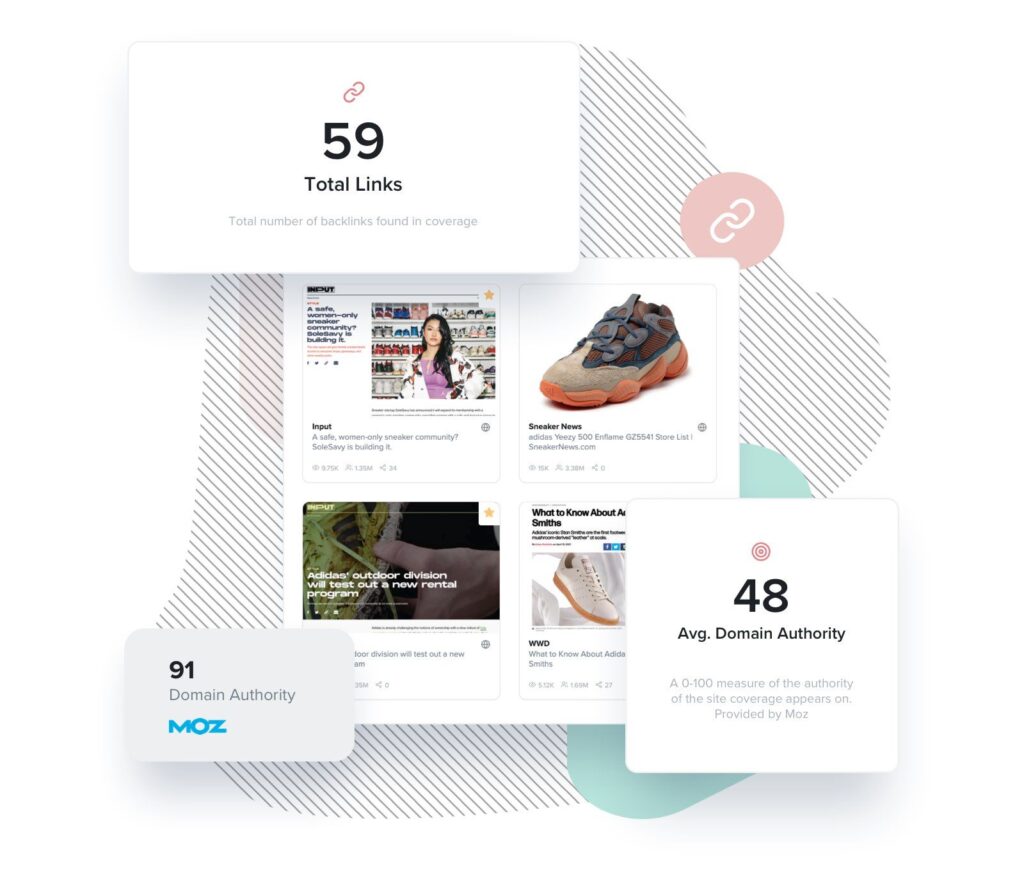PR and SEO are more connected than ever. So we hosted a webinar with Amy Irvine from Digiloft, where she shared her insights on using Digital PR to increase brands’ visibility on Google.
The key takeaway? Traditional PR can significantly affect search visibility; you just might not realise it – yet.
If you’re curious about how your PR efforts may already be boosting your SEO, you can check out the full replay here. But if you want a quick overview, here’s a rundown of Amy’s key points!
Let’s start at the beginning: What is SEO?
SEO, or Search Engine Optimisation, is all about helping your website appear when people search on Google (and other search engines, too!). The higher your site ranks in search results, the more organic traffic you’ll attract. And one of the biggest boosters for these rankings? Backlinks—which are links from other websites that point to yours.
Think of it as a vote of confidence. When a reputable site links to yours, search engines take it as a signal that your content is trustworthy and relevant, giving your site a little extra boost in those search rankings. So, every piece of coverage you secure with a link back is one more vote of confidence.
Traditional PR vs. Digital PR: What’s the Difference?
Traditional PR focuses on building brand awareness, shaping public opinion, and increasing the brand’s share of voice in relevant media. Digital PR, however, takes this concept online, with the main aim of securing those all-important backlinks.
So, these two worlds aren’t as separate as they seem; traditional PR can naturally support SEO by generating valuable, authoritative backlinks. Think about it: every time a news site, industry publication, or influencer covers your story, they create opportunities for links, which in turn boosts your brand’s online visibility.
Everyone is Talking About Link Relevance—What Does That Mean?
Not all links are created equal. Search engines favour links that genuinely make sense for your industry and audience. When a site with related content links back to you, it adds much more authority—and that’s far more valuable than random, unrelated links. In fact, Google isn’t shy about penalising sites with a bunch of off-topic links, which means those can do more harm than good for your SEO.
The good news? Traditional PR links are usually spot on! When coverage mentions your brand or product, those links are naturally relevant, so you are already creating relevant links.
Measuring Link Relevance
While you might have a sense of when a link is relevant, measuring it can be tricky, as it’s often subjective! That’s why Digiloft has rolled out a ‘Relevance Report.’ Using natural language processing to objectively evaluate how relevant a site’s backlinks are.
These reports also highlight relevancy gaps, pointing out areas where your website could benefit from a boost of authority on a particular topic. These ‘relevancy gaps’ are fantastic to bring to creative campaign brainstorms.
So, the next time you’re putting together a PR campaign, remember to consider how you can boost links back to your site. Trust me, it makes a big difference!
Link up with the SEO team to maximise your impact
The first step is to measure the links you’re already achieving, and CoverageBook can help you do that automatically. Here’s how.
Once you know how many links your last campaign scored, take that information to your SEO team to open up discussions. They can help you enhance your SEO by:
- Sharing high-priority keywords – They’ll know what SEO terms your brand or client wants to improve, which you can then use to brainstorm relevant campaigns.
- Learning from competitors – Your SEO competitors might differ from your traditional ones. You can also discover where your competitors are securing links and use that information to expand your media list.
- Spotting key topics: If they have relevant reports and share relevance gaps, you can build campaigns around them.
Remember, by securing high-quality links through your PR efforts, you’re not just building awareness—you’re also helping your site climb the search rankings. And so you can be tapping into the SEO budget, not just the PR one.
Check out the full webinar replay and Amy’s presentation, including inspiration for campaigns for relevant links is here. If you want to continue your SEO journey, this is a good post to read next.
